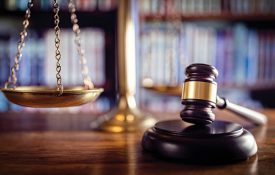-

Justice Department Turns to Psychological Science to Improve Eyewitness Testimony
The US Department of Justice (DOJ) is tapping into psychological science to develop new guidelines for eyewitness identification procedures. Visit Page
-

Justice Department Turns to Psychological Science to Improve Eyewitness Identifications
The US Department of Justice draws on psychological research to identify best practices in eyewitness identification procedures. Visit Page
-

Loftus Receives 2016 John Maddox Prize
APS Past President Elizabeth F. Loftus has been awarded the 2016 John Maddox Prize, which honors scientists who have shown courage in promoting science on a matter of public interest in the face of difficulty Visit Page
-

Loftus Receives 2016 John Maddox Prize
APS Past President Elizabeth F. Loftus has been awarded the 2016 John Maddox Prize, which honors scientists who have shown courage in promoting science on a matter of public interest in the face of difficulty Visit Page
-
Whether Eyewitness Memory or DNA, Contaminated Forensic Evidence Is Unreliable
Decades of psychological research have revealed the weaknesses of eyewitness testimony, but APS Fellow John T. Wixted points to a real-life murder conviction to illustrate how DNA evidence can be just as fallible. Visit Page
-
False memories: from the lab to the courtroom
The Guardian: For decades now, we’ve known that our memories are not as infallible as we like to think. And with research now showing that researchers are able to plant entirely novel memories that never Visit Page

